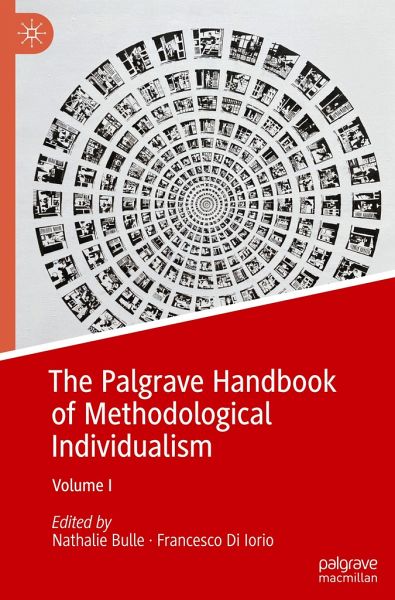
The Palgrave Handbook of Methodological Individualism
Volume I
Herausgegeben: Bulle, Nathalie; Di Iorio, Francesco

PAYBACK Punkte
76 °P sammeln!
While methodological individualism is a fundamental approach within the social sciences, it is often misunderstood. This highlights the need for a discursive and up-to-date reference work analyzing this approach's classic arguments and assumptions in the light of contemporary issues in sociology, economics and philosophy. This two-volume handbook presents the first comprehensive overview of methodological individualism. Chapters discuss historical and contemporary debates surrounding this central approach within the social sciences, as well as cutting edge developments related to the individua...
While methodological individualism is a fundamental approach within the social sciences, it is often misunderstood. This highlights the need for a discursive and up-to-date reference work analyzing this approach's classic arguments and assumptions in the light of contemporary issues in sociology, economics and philosophy. This two-volume handbook presents the first comprehensive overview of methodological individualism. Chapters discuss historical and contemporary debates surrounding this central approach within the social sciences, as well as cutting edge developments related to the individualist tradition with philosophical and scientific implications. Bringing together multiple contributions from the world's leading experts on this important tradition of theorizing, this collective endeavor provides teachers, researchers and students in sociology, economics, and philosophy with a reliable and critical understanding of the founding principles, key thinkers and intellectual development of MI since the late 19th century.














